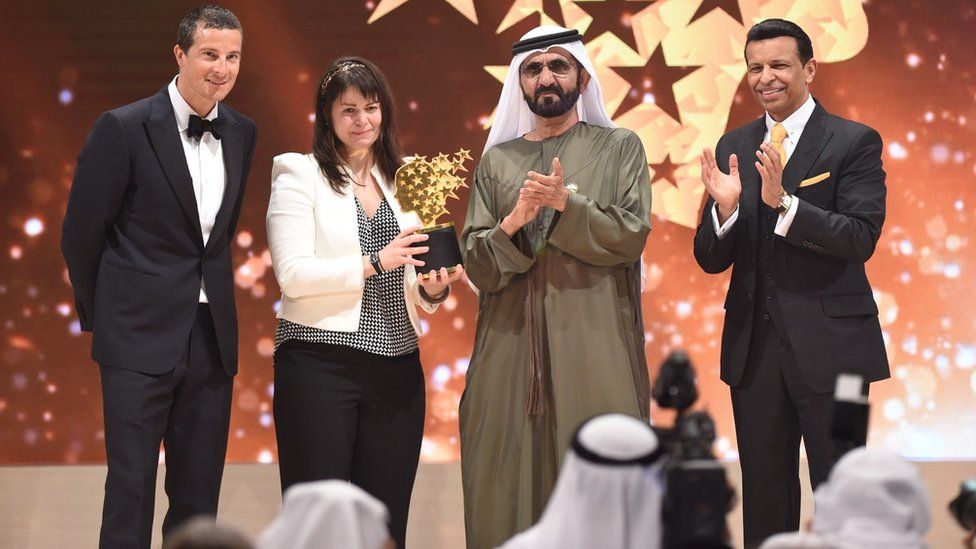McCall and Hollenbeck found that more than one-third of developing and academic competencies they scored came from high school, college, and graduate school learning. Senge (1990) needed an action toward organizational understanding in ANA GLOBAL.
The Sixth Control and McCall and Hollenbeck bring it more describing that organizational understanding must certanly be productive, have a worldwide perspective, have large expectations, and reflect the world wide nature and cultures of the organization.
A recently available tv advertisement depicts workers standing around their personal information arrays bemoaning the messages they’re obtaining from other staff members. They’re bewildered and dismayed that the messages ask for their world wide organization strategy. Seeking among each other, they question when they have even a worldwide organization strategy. We nearly have to conclude, they’ve none.
Obviously, the offer is offering a communications item maybe not organization strategy. Yet, how did these specialists end up in that problem? Were they conscious that international organization needs changes? Going world wide is a process that begins with head vision and foresight and usually takes years to properly accomplish.
Leaders who positively check the horizon for new opportunities also begin to see the challenges the opportunities present. They see barriers, never as hindrances, but brief breaks inside their ahead movement. Like doing a power subject examination for change, leaders examine barriers for methods to minimize bad causes and increase good forces.
The emphasis with this conversation is on changes companies will experience when planning global. Adaptations suggest the company and its leaders have to become alert to possible barriers creating a navigation technique to overcome them. Moreover, cultural relations among workers on a worldwide aircraft will mean a different socio-technical climate.
Among corporations in the United States, small and moderate procedures might work within the boundaries of a single state. They have to obey state regulations governing the direction they do business. On a higher stage, some organizations work as interstate businesses.
They have to adjust to regulations of numerous states and obey federal interstate commerce laws. As ambiguous as these regulations might be, running within the company’s home nation is far less difficult than establishing to world wide demands.
Addressing changes U.S. companies experience upon planning world wide start significantly earlier than in college organization schools. Elementary and secondary schools however show a conventional curriculum of studying, ‘riting, and ‘rithmatic in very similar way as two decades ago (Andrzejewski & Alessio, 1999). Thus, the first version challenge to overcome is traditional education that remains mostly ethnocentric and nationalistic.
Alternatively, the American Union wrestles with a new feeling of supranationalism. Supranationals are cross-national or subnational citizens that do maybe not maintain “political identity and national membership” (Bridge & Watson, 2002). The business head getting an organization world wide today has a challenge that causes considering beyond nation one and nation two toward a recognition of men and women residing in one or yet another state but not feeling or being truly a area of the national culture.
The American Union grants citizenship rights to any national of the EU regardless what state they presently reside. However, granting of citizenship rights to foreign nationals is a complicated issue and each member state chooses on citizenship processes. Based on Connection and Watson, American towns have concentrations of foreign nationals from as little as about 14 per cent in Paris to as large as 32 per cent in Amsterdam.
Version to world wide organization, thus, is never as easy as combining the lifestyle and organization practices of numerous countries. Version is an understanding process in accordance with McCall and Hollenbeck (2002). The training process goes beyond organization, they say. International organization is organization; nevertheless, in national contexts, establishing to the lifestyle is a tougher lesson to understand without encountering it as an expatriate.
U.S. organization has a long strategy to use to overcome barriers to adaptation. McCall and Hollenbeck (2002) supply a see of barriers in the proper execution of classes realized by international professionals versus U.S. executives. Among international professionals giving an answer to overcoming the barrier of lifestyle, they reacted understanding yet another language was the number one ability followed closely by researching a specific lifestyle and how to reside for the reason that culture.
Executive believed these abilities were necessary (Table 4-1, pg. 95). In addition, McCall and Hollenbeck’s research suggested that international professionals are more alert to running a business while U.S. counterparts are involved about specialized knowledge.
In leading and handling the others, international professionals need to understand to keep persons encouraged and determined while U.S. professionals are involved about leading and motivating followed closely by management values.
However, U.S. organization rates 2nd among 59 nations scored on nine financial conditions for world wide competitiveness (Rosen, 2000). From this statistic, the U.S. organization is start and economically protected, has got the engineering, labor power, and infrastructure attractive to international business.
Yet another barrier to effective world wide authority, addressed above, is education and developing activities (McCall & Hollenbeck, 2000). Leaders offered education and developing activities next among 18 knowledge categories. However, world wide leaders offered it more frequently than U.S. domestic leaders.
